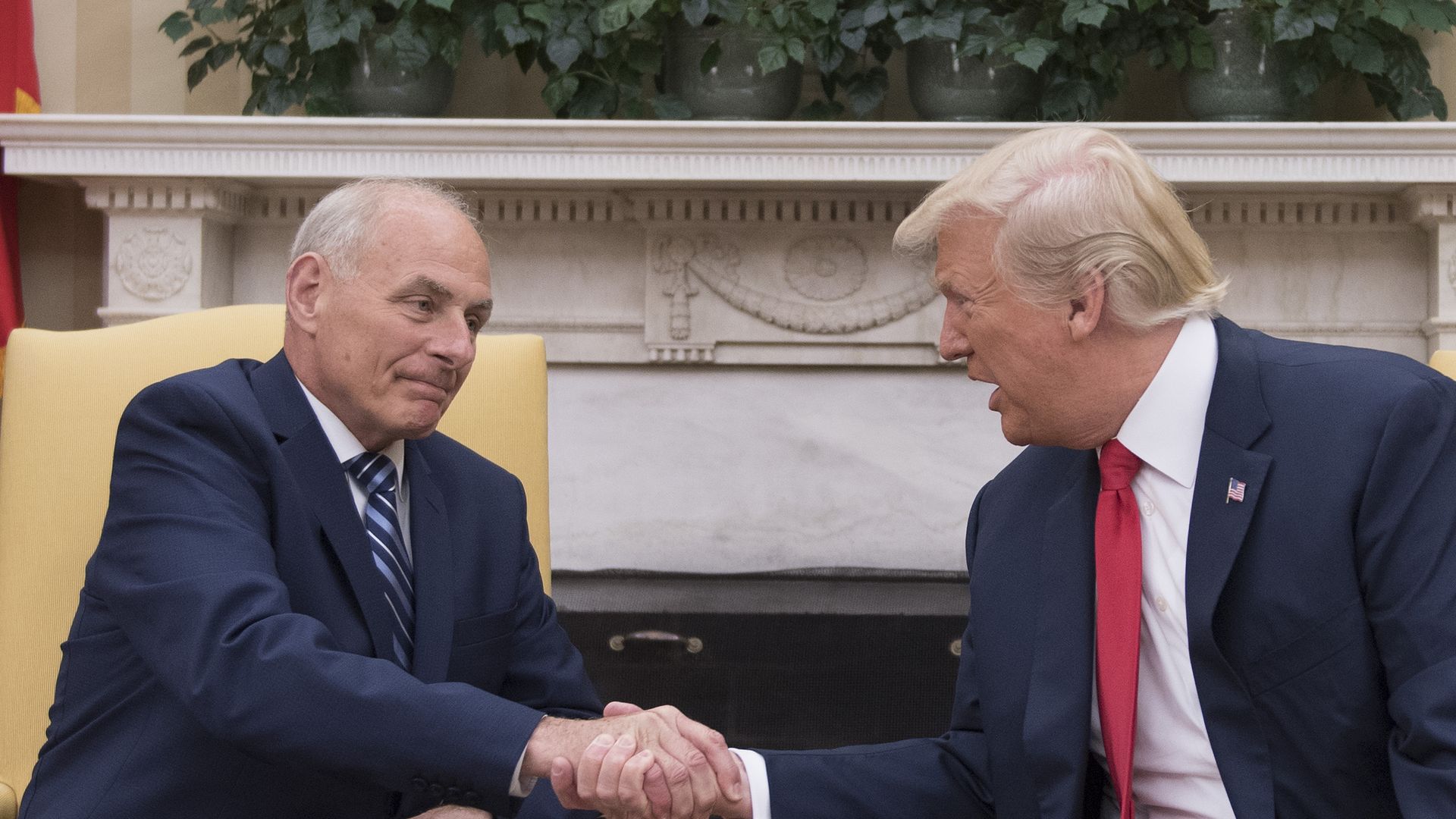Trump offered FBI director job to John Kelly, asked for loyalty
Add Axios as your preferred source to
see more of our stories on Google.

Photo: Jim Watson/AFP via Getty Images
The day after President Trump fired FBI boss James Comey, the president phoned John Kelly, who was then secretary for the Department of Homeland Security, and offered him Comey's job, the New York Times' Pulitzer Prize-winning reporter Michael Schmidt reports in his forthcoming book, "Donald Trump v. The United States."
Driving the news: "But the president added something else — if he became FBI director, Trump told him, Kelly needed to be loyal to him, and only him."
- "Kelly immediately realized the problem with Trump's request for loyalty, and he pushed back on the president's demand," Schmidt writes.
- "Kelly said that he would be loyal to the Constitution and the rule of law, but he refused to pledge his loyalty to Trump."
Why it matters: This previously unreported conversation sheds additional light on the president's mindset when he fired Comey. Special counsel Robert Mueller never learned of this information because the president's lawyers limited the scope of his team's two-hour interview with Kelly.
- "In addition to illustrating how Trump viewed the role and independence of senior officials who work for him, the president's demand for loyalty tracked with Comey's experience with Trump," Schmidt writes.
Behind the scenes: Schmidt reports that "throughout Kelly's time working directly with Trump, Kelly was repeatedly struck by how Trump failed to understand how those who worked for him — like Kelly and other top former generals — had interest in being loyal not to him, but to the institutions of American democracy."
- "Kelly has told others that Trump wanted to behave like an authoritarian and repeatedly had to be restrained and told what he could and could not legally do."
- "Aside from questions of the law, Kelly has told others that one of the most difficult tasks he faced with Trump was trying to stop him from pulling out of NATO — a move that Trump has repeatedly threatened but never made good on, which would have been a seismic breach of American alliances and an extraordinary gift to Putin."
Quote of the book: "Kelly has said that having to say no to Trump was like 'French kissing a chainsaw.'"
Another revelation: Schmidt reports that Mueller's prosecutors made near real-time requests to McGahn's lawyer, Bill Burck, to find out what the president was telling the White House counsel in their private conversations.
- In a summary of the reporting, Schmidt tells me, "This was a highly invasive tactic. Mueller's team wanted to know whether Trump had a role in the firing of the acting FBI director Andrew McCabe and whether Trump was saying anything about prosecuting Comey."
- "Trump was indeed discussing prosecuting Clinton and Comey, and McGahn had written a memo to Trump detailing why he should not be pressing the Justice Department for such a prosecution."
My thought bubble: This kind of activity from Mueller's team was far more invasive, in terms of information-gathering from the president's inner circle, than any investigating that happened on the 2016 campaign.
